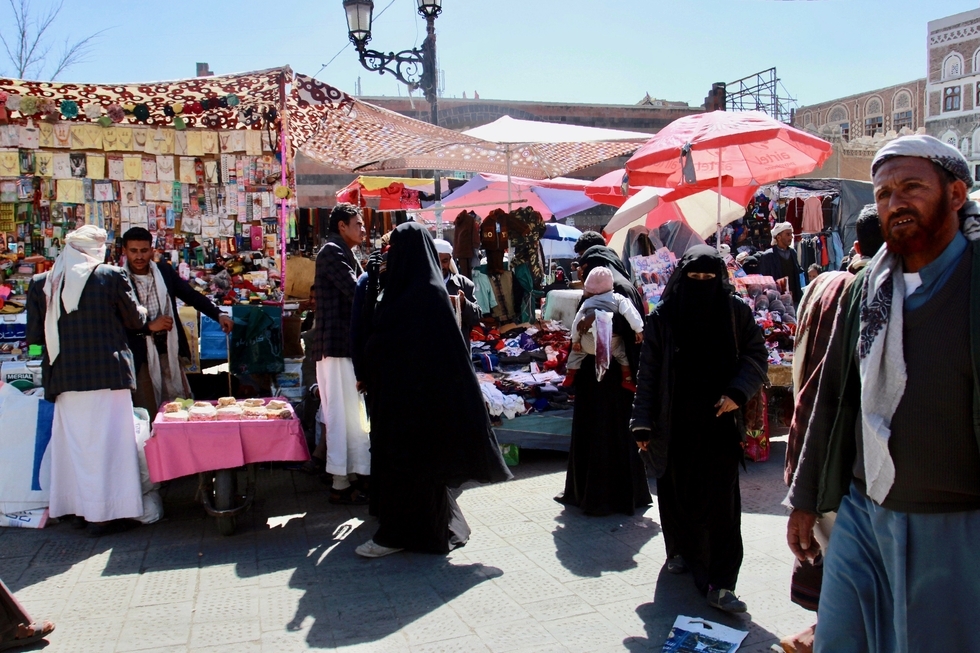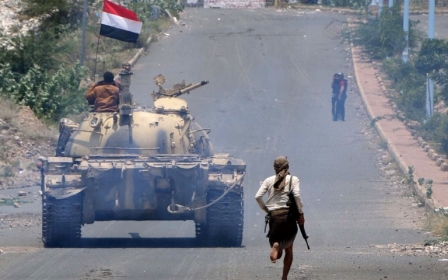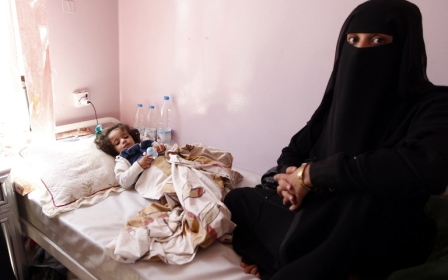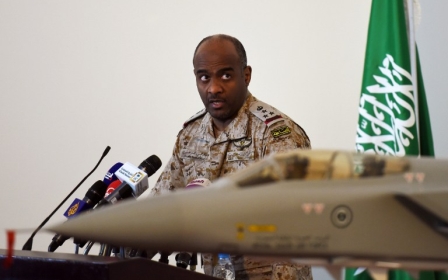Yemen truce strained by reports of air strikes, fighting around Taiz

A truce aimed at ending more than a year of war in Yemen began on Saturday, although residents said fighting was still going on in parts of the country.
The 48-hour ceasefire by the Saudi-led military coalition raised hopes of an end to a humanitarian crisis caused by a war that has drawn in regional foes Iran and Saudi Arabia.
The truce seemed to be largely holding up despite gun battles in the western city of Taiz and air strikes by the Saudi-led coalition reported by residents in villages east of the capital Sanaa.
Yemen's Saudi-backed government of exiled President Abd Rabbuh Hadi and its Iran-aligned Houthi adversaries blamed each other for the violence in Taiz, where thousands of civilians are trapped and many have been wounded. Government forces this week made advances on Taiz threatening to break a year-long siege by the rebels.
Saudi Arabia and allied Sunni Muslim Gulf states began a military campaign in March last year to prevent the Houthis and forces loyal to ex-president Ali Abdullah Saleh from taking control of the whole country.
The Saudi-led coalition expelled enemy fighters from the southern port city of Aden last summer, but the Houthis continue to hold the capital and tracts of the country, with the help of Saleh loyalists.
More than 10,000 Yemenis have been killed in the war.
The truce started at noon (0900 GMT), the Saudi Press Agency reported, and could be extended if the Houthis show commitment to it and allow aid into areas such as Taiz.
The Houthis said on Wednesday they were ready to stop fighting and join a national unity government.
"The Yemeni people exercise their right to self-defence and when Saudi Arabia stops fighting, the war will stop," Mohammed al-Bukhaiti, a member of the Houthi politburo, told Reuters on Saturday when asked about the group's commitment to the truce.
But he said Saudi Arabia's decision to announce the ceasefire just a few hours before it began meant there was not enough time to arrange for aid convoys to be delivered.
Saturday's ceasefire was announced after diplomacy by US Secretary of State John Kerry, but Hadi's camp said that although its Gulf allies had been consulted, his government had been sidelined.
The coalition has not said whether it accepts the UN-brokered peace plan that gives the rebels a share of power.
Hours before the ceasefire began, a soldier in Saudi Arabia was killed by a missile fired by the Houthis, the interior ministry said, the type of cross-border attack that the Saudis insist must stop.
Any "military movements" by Houthi forces will be "addressed by the coalition," said the SPA statement, adding that controls imposed by the coalition on Yemen's ports and airports to stop arms getting to the enemy will remain in place.
The near-blockade on air, sea and land access has caused food shortages in a country that imports over 90 percent of its staples, driving up prices and making it impossible for many Yemenis to feed themselves and their families.
No side has emerged as the dominant force in a war that has dragged into stalemate, displaced more than 3 million people and given room for a powerful branch of al-Qaeda to expand its operations.
The frontline has changed little over recent months, with the Houthis and their allies holding most of Yemen's northern half, including the capital Sanaa, while forces loyal to Hadi share control of the rest of the country with local tribes.
Hadi's government says the Houthis illegally seized power in a coup backed by Iran, and demands that they quit the cities they seized and hand over heavy weapons before any political settlement starts.
The Houthis say they took power to end corruption and to get rid of Islamist militants they say expanded their influence during Hadi's presidency.
New MEE newsletter: Jerusalem Dispatch
Sign up to get the latest insights and analysis on Israel-Palestine, alongside Turkey Unpacked and other MEE newsletters
Middle East Eye delivers independent and unrivalled coverage and analysis of the Middle East, North Africa and beyond. To learn more about republishing this content and the associated fees, please fill out this form. More about MEE can be found here.




